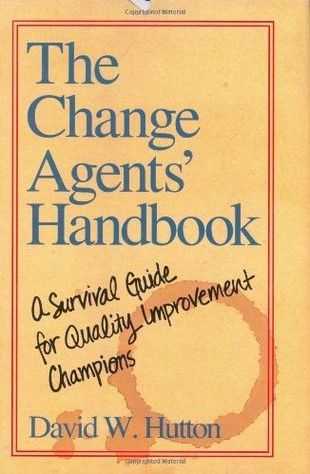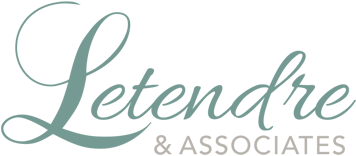Leading Change…the Life of a Change Agent
As you pursue excellence in your organization, program, or department, you are likely in need of creating transformative levels of change. Few organizations are far enough along the path where incremental improvements will be sufficient.
As we create transformative change in our organizations, we are wise to thoughtfully consider who are the best change agents to help us create and sustain this intensity of change. “Change agents” go by all sorts of titles; their value and contributions are immense.
David Hutton, author and organizational quality guru, literally wrote the book on change agents. His timeless book “The Change Agents’ Handbook: A survival guide for Quality Improvement Champions” is my recommendation to clients and colleagues seeking to lead, guide, and create systematic change in their organization.
I was very fortunate to have David as one of my two professional mentors many decades ago when I served as an internal change agent for our organization’s pursuit of organizational excellence.
David’s clever book cover says it all:

This will be your go-to guide, for years to come, as you navigate the change process inherent in the pursuit of organizational excellence (which David terms “quality improvement” – in the spirit that that term was used in the 90’s).
What I learned working alongside David in our Baldrige-based organizational assessments and throughout Rutland Regional Medical Center’s “journey to excellence” shaped my leadership, my career, and my work with client organizations over the ensuing decades.
Here are some of the highlights of being a change agent:
- There are often many people involved in creating and managing transformative-level change in an organization. One of those key people, for an organization-wide effort, is the chief executive. This leader must set and communicate the vision and the need for change. They must be persistent even in the face of inevitable setbacks and resistance. They must consistently exhibit the characteristics and attributes of an effective change agent. For smaller scale change efforts, the chief executive can sometimes serve the role of change agent. However, CEOs will not typically have the time necessary to fully serve this comprehensive role during large-scale and ongoing organizational transformation. They should appoint a trusted change agent.
- The formal change agent within an organization’s pursuit of excellence should be (or become) a member of the senior leadership team. They should have or quickly earn the respect of their peers as a trusted resource to them.
- For example, when I served as the internal change agent for a multi-phased organizational transformation, I was the Vice President of Planning & Organizational Excellence. In this role I led our organization’s planning system including strategic, tactical and action planning, as well as our organizational review process, customer needs assessment process and facilitated service line planning. Alongside these leadership responsibilities, I served as the change agent for organizational excellence. I was a true peer of and often a trusted resource to each member of the senior leadership team. I supported them as well in developing their leaders and up and coming managers in the principles, tools and methods of organizational excellence.
- Being an excellence champion requires a broad and deep knowledge-base, but as David Hutton so practically shared in one of our early mentoring calls, you simply need to stay 2-3 steps out ahead of the rest of the organization. So while there is a lot to learn, there is time to gain this new knowledge. Of course, one needs a voracious appetite for learning new things to be successful in this multifaceted role.
- In supporting numerous (internal and external) change agents over the past decade and a half, I have seen many types of individuals with varying degrees of existing knowledge succeed in the role.
One should give careful thought to whether they have the attributes to be successful in this change agent role both for the benefit of the organization and for themselves. Creating momentous change most certainly has its ups and downs. Having weathered many of both, when doing this firsthand as a senior leader and change agent, I share this here so that you’ll know both what to expect but also so that you’ll know you’re not alone and that you can reach out to a fellow change agent.
Resistance to change has many faces. As a proponent for change and improvement you will need to be very accustomed to spotting resistance in its many forms. There are many trusted resources to turn to in order to build your skillfulness in the face of roadblocks.
Having spent most of my career as an internal or external champion for transformational improvement, the numerous rewards have outweighed the drawbacks. David’s book offers many cautions to carefully consider for your situation.
Looking back and being able to observe: an organization going from a place where the status quo was tolerated to one where improvement was expected and then celebrated, and eventually to one where excellence and momentous change is pervasive… These have been my greatest joys as a change agent.
This is possible, and even more certain, when you have a very capable change agent guiding your organization’s pursuit of excellence.
If you are a champion for change, I’d love to share your lessons learned here in future editions of Excellence Advantage Inspirations. If you haven’t yet found David’s handbook, I highly recommend it as one of your companions on the journey.

If you’d like to receive these Inspirations in your inbox every other week, you can subscribe to Kathy’s Excellence Advantage Inspirations Newsletter.
Kathy Letendre, President and Founder of Letendre & Associates, advises organizations and leaders to create their excellence advantage.
Contact Kathy by phone or text at 802-779-4315 or via email.

